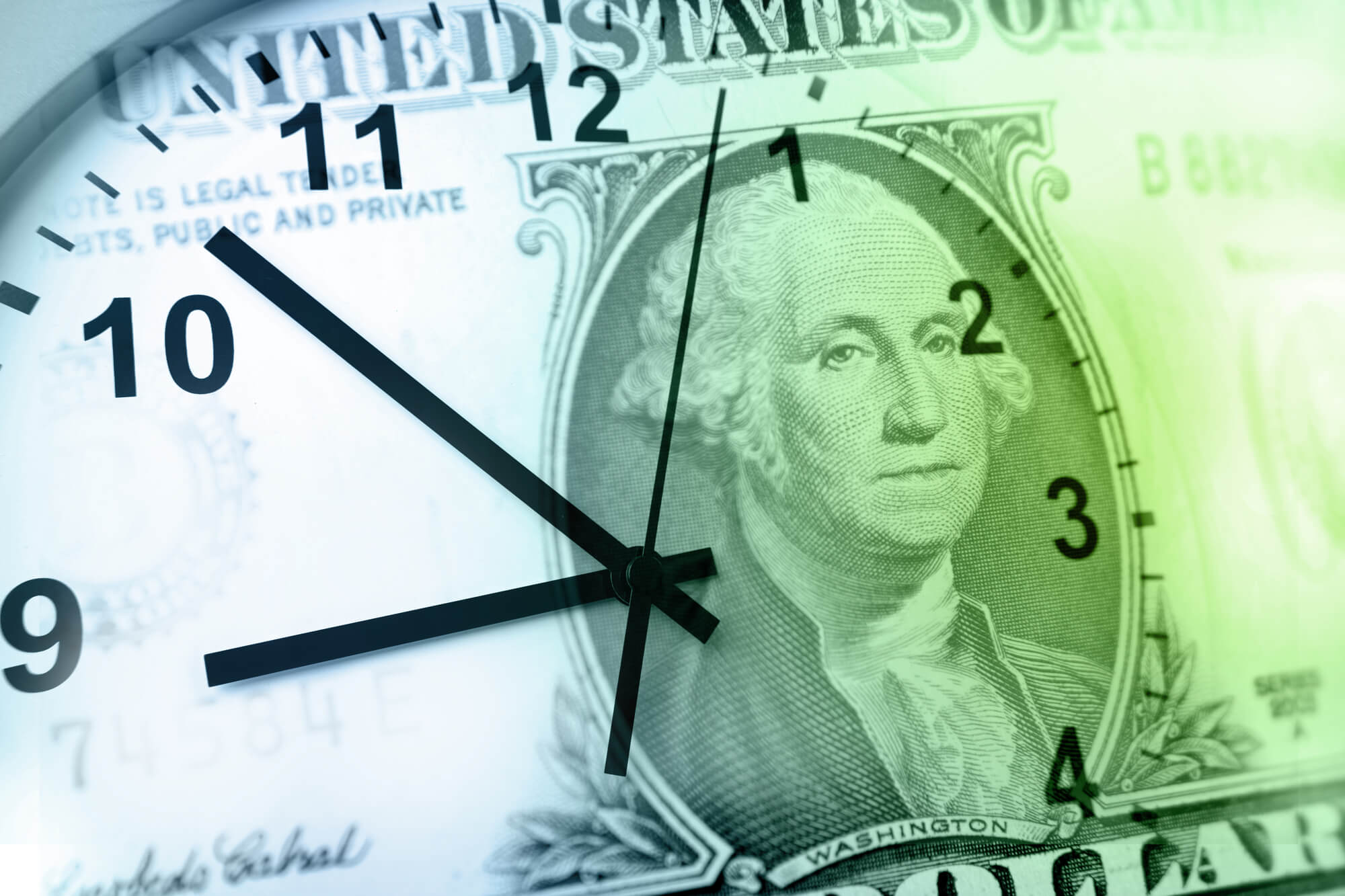Money is typically portrayed either as very desirable (luxury homes, cars, travel, or lifestyle) or completely unattractive (greed, crime, corruption, or abuse). But regardless of how it’s represented, it’s clear spending money is essential to life as we know it.
Spending money is necessary to satisfy Maslow’s hierarchy of needs, including physiological, safety, belongingness and love, esteem, and self-actualization needs. Money itself is valueless, but it represents the exchange of value used to purchase goods or services to keep one happy and healthy.
Understanding how to harness money as a tool to meet your biological needs will allow you to make more efficient purchasing decisions. In our modern society, it would be difficult to maintain your wellbeing, and by breaking down Maslow’s hierarchy of needs, it’s easier to understand why spending money is necessary.
Why Spending Money Isn’t Going Anywhere
The Functions of Money
Though money is inherently worthless (it’s just printed paper), it serves a requisite function in our contemporary civilization. Money is a universal method of exchange, a unit of account, and a store of value. Because we operate in a currency economy rather than a barter economy, we exchange value with a proxy: we choose to instead trade money, rather than goods or services. This is how money derives its value, and it is also why it’s necessary to spend money to survive.
Why Money Matters
The importance of spending money can be approached through multiple lenses, including economic or community lenses (i.e. how spending drives the global economy, or how it allows communities to thrive). But relating individual needs to the world at large can be challenging. A useful way to understand why spending money is important on a personal, independent level is through a psychological lens.
Much like an emoji of a pineapple is nothing but a representation of an actual pineapple, money is nothing more than a symbol of something else: actual value. This value could be labor (i.e. babysitting) or a good (i.e. food), but it is real and often tangible. Money is transferred in a simplified, universal trade for something of real value. In the context of Maslow’s hierarchy of needs, items of real value are those that meet one of our basic needs, including physiological, safety, belongingness and love, esteem, or self-actualization needs. Maslow’s theory states that human beings are motivated by a series of needs, and therefore, we create value in exchange for obtaining something to meet our needs. The following chart is a breakdown of various needs we have. Continue reading to understand what might be bought with money to satisfy these different necessities.
| Physiological Needs | Air | Food | Drink | Shelter | Warmth and clothing | Sleep | |
| Safety Needs | Personal security | Emotional security | Physical health | Financial security | |||
| Belongingness and Love Needs | Friendship | Intimacy | Trust | Acceptance | Giving affection | Being part of a group | |
| Esteem Needs | Dignity | Mastery | Independence | Status | Prestige | Aesthetic needs | Cognitive needs |
| Self-Actualization Needs | Realizing personal potential | Self-fulfillment | Personal growth | Peak experiences | Values which transcend beyond personal one’s self |
While some of these needs translate more directly to a good or service (such as food), all described needs are able to be realized by spending money (often with additional work by the spender). Each category in the hierarchy of needs can be examined to highlight why spending money is necessary for survival.
Spending Money on Physiological Needs
This category is arguably the most obvious that can be satisfied with money. Though previous societies existed with a bartering economy without currency (goods were traded for goods directly, rather than using a standardized representation of value such as money), today’s society requires us to spend money to meet our most fundamental needs, such as food, water, shelter, and warmth. Without food or water, we’d die! Without shelter or warmth, we’d… also die. Because we function in a society dependent on money, we must spend money to make sure our physical bodies are taken care of.
Spending Money on Safety Needs
Building on top of physiological needs, the safety needs category includes needs such as personal, emotional, physical and financial security. Personal security is more than just shelter. A shelter could be a thin tarp extended to prevent rain or snow from soaking you, but personal security is a home with walls and a ceiling and protection from the elements. After feeding our bellies, we must spend money to pay for housing. Emotional security is order, law, stability, and freedom from fear. After spending money on warmth and clothing, we spend money on taxes to allow government to create stability and enforce law and order in our lives. Physical health is visiting a doctor, exercising, and eating nutritionally. After spending money on water to drink, we spend money to work out at a gym or see a specialist. Financial security is investing money, setting aside funds in a checking account, and obtaining a stable job. After spending money on the remainder of physiological needs, we spend money investing in our education and training to get a good job, or to consult with financial professionals for customized advice. Spending money is necessary to keep us safe and out of harm’s way.
Spending Money on Belongingness and Love Needs
Maslow describes how fulfilling our needs happens sequentially: after being able to meet our physiological and safety needs, we are able to focus on finding belongingness and love. This might sound counterintuitive at first because you certainly can’t buy love! Think of spending money on belongingness and love needs as an investment rather than a onetime purchase. To enjoy friendship, you must invest time in a relationship, and quality time sometimes involves spending money. You could be out to dinner with someone you haven’t seen in years, or enjoying a concert with your next-door neighbor. Even if you choose to spend time freely with a friend, your time still equates to money, because you could be working and making more money instead of being with that person. This is a phenomenon known as opportunity cost – no “real” money is leaving your pocket, but money could have been made and wasn’t, so money is “lost”.
Other needs that fall under the belongingness and love category include acceptance and belonging to a group. Belonging to a group might very well entail spending money together. If you are part of a hobby fly fishing group, you spend money on equipment and travel expenses. If you are part of networking group, you might pay a yearly membership fee. Though relationships can’t be bought with actual money, spending money can be an important part of maintaining healthy, quality relationships and connections.
Spending Money on Esteem Needs
According to Maslow, our needs become increasingly more complex as they are layered on each other. Esteem necessities, including dignity, mastery, independence, or prestige, are more intricate than food, water, and shelter. But even these complicated necessities can be obtained using money (though again, definitely not money alone!).
Professional status could be improved by paying for professional coaching, obtaining (and therefore purchasing) advanced education, or participating in paid professional groups. Aesthetic needs (which can be defined as an appreciation or desire for beauty, nature, and balance) could be thought of as buying pleasing interior decor, spending money on traveling to picturesque landscapes, or obtaining attractive art. Cognitive needs (which can be defined as developing curiosity, meaning, or creativity) could be met by paying for art or music lessons, purchasing advanced education courses, or spending money on meditation services.
Another esteem need is independence. In the context of money rather than government, financial independence can be acquired though hard work and self or business investment. By building enough sustainable income to live off of forever, you can walk away from your day job and spend your time in truly enjoyable ways, but that might take capital investment. If you want to start a business selling products on Amazon, you will need to expend money to secure product stock. If you want to become a landlord and own multiple rental properties, you will need to save and spend money to buy various properties. Though money definitely won’t make you free, it can help you progress on your journey towards financial independence.
Like other basic needs, esteem needs can be improved by spending money smartly and with purpose.
Spending Money on Self-Actualization Needs
The innermost needs are described by Maslow as self-actualization needs. This category includes the needs to realize self-potential, obtain personal growth, enjoy peak experiences, and discover and identify with values that transcend beyond yourself. This group of needs comes last for a reason: you can’t achieve your fullest potential when you can’t feed yourself. How many times have you said something you regretted, or made a decision you wish you wouldn’t have, when you were too hungry? It is challenging to think beyond immediate gratification and focus on more consequential pursuits.
Though the correlation between money and self-actualization needs isn’t as clear as money and physiological needs, it definitely still exists. Think of parenting. Parenting is an excellent way to unlock untapped potential and find deep meaning in life, but it’s not a free endeavor. Proper parenting includes spending money on physiological, safety, and other needs for someone else!
Similar to how belongingness and love needs require you to spend time to enjoy happy relationships, self-actualization needs also demand your time and attention. Spending money to buy back time is a crucial part of being able to fulfill self-actualization needs, and an integral step to achieving financial independence. Though financial independence isn’t essential to satisfying self-actualization needs, knowing you are able to spend the best hours of your days in meaningful work will expedite your process of realizing your fullest personal potential.
But just because spending money in our modern world is vital to meeting our needs doesn’t mean you need to spend more money. It just means you need to spend money in the right place, at the right time, efficiently.
How to Spend Less, Even if Spending is Necessary
We all spend money to live, but there are a myriad of ways to spend more wisely (and to spend less overall).
First, make sure to budget. There are multiple approaches to budgeting, so pick one that works for you and stick with it (experiment until you find something you like). Use your budget to distinguish wants versus needs and to set specific, measurable financial goals (such as saving x amount for x purchase, or contributing x amount to a 401(k). Track what you are currently spending, why you’re spending, and the outcome of your spending. This could look something like tracking $25 spent on dinner over the weekend ($25 goes into a dine out or food category of your budget). You spent it because you were out with a friend. You actually didn’t enjoy the dinner at all, and would prefer to cook next weekend and have someone over instead. By tracking your spending and the reasons and results of that spending, you can begin to eliminate unnecessary, unrewarding spending.
Second, identify ways to reduce necessary expenses. Before buying new groceries for the week, shop your pantry. Take advantage of any transportation subsidies (such as reduced cost train fare) offered by your work or school. Participate in clothing swaps or shop at thrift stores to find new pieces. By adopting a few simple habits, you can learn to live life without spending money.
Third, find ways to increase your income. Though this doesn’t help you spend less money, it can offset how much you are spending because you have more to spend! Consider picking up a side hustle, asking for a raise at work, or even changing careers. Money is only as limited as you treat it.
Even though it can be difficult not to spend money, it’s not impossible to curb frivolous or unwanted spending. By using the techniques above, you can spend money without overspending.
Conclusion
Because our modern world operates in a currency culture rather than bartering one, spending money is necessary to survival. The importance of spending money can be understood through the lens of Maslow’s hierarchy of needs, including physiological, safety, belongingness and love, esteem, and self-actualization needs. By spending money thoughtfully, you can use money as a tool – not a master – to achieve your goals.
Climb on, FinBase.
B









